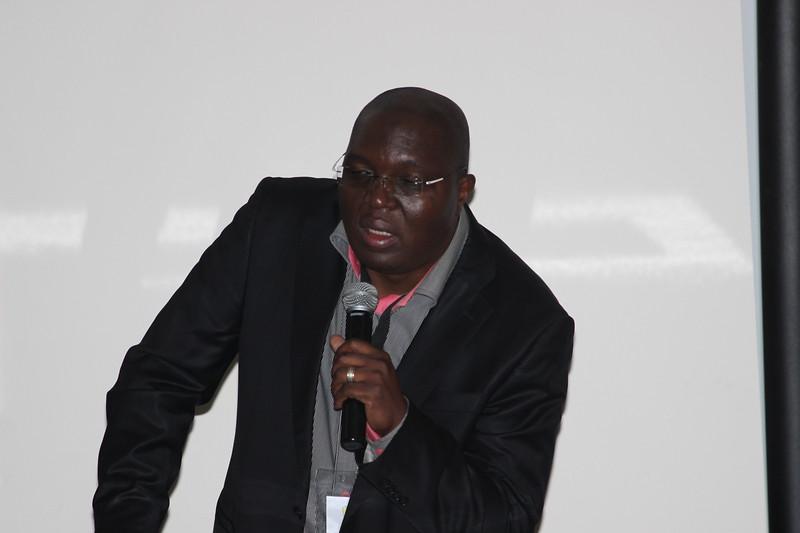Event reports
“Dancing with Elephants”
Investigative journalists often experience unequal balances of power. Especially when dealing with powerful corporations they have to show bravery and tenacity. David Barstow, journalist at the New York Times, calls this “Dancing with Elephants”. This Pulitzer-Prize winner uncovered one of the largest bribery scandals at Walmart in Mexico. Barstow shared his investigative story about Walmart at this year’s Power Reporting Conference and highlighted how important it was to prepare. To deliver a successful investigative story you need to “marinate” it in the facts, the Times journalist said.
Barstow’s presentation was one of more than 60 items on this year’s Power Reporting programme. The conference took place on the Wits University Campus, Johannesburg, for the 5th time this year, and again the Konrad Adenauer Foundation’s Media Programme for sub-Saharan Africa (KAS Media Africa), was a partner – continuing its endorsement for a diverse, free and independent media on the African continent.
The framework of the 2013 Power Reporting conference also provided a forum for KAS Media to tend to the watchdog role of media. Many journalists on the continent are poorly informed about their rights, so in 2011 - along with media law expert Justine Limpitlaw, KAS Media Africa published the “Media Law Handbook for Southern Africa – Volume 1”. Then finally, this year, Volume 2 was launched. Both Volumes of the handbook were handed out to the Power Reporting delegates – attracting enormous interest, and after only a few minutes the books were finished.
“Take investigative journalism to another level”
Corruption within the Nigerian oil industry, conflict minerals in the DRC, China’s economic influence on the African continent – the list of presentations and discussions was long, yet all culminating one objective: To strengthen the skills of investigative journalists - to “take investigative journalism to another level”, as Mzilikazi wa Afrika, member of FAIR (Forum of Afican Investigative Reporters) and Sunday Times journalist, said. Within the three-day conference more than 40 speakers covered topics such as: “Corruption”, “Community Voices” and “Business and Finance”. Furthermore many of the presentations highlighted the difficult conditions in which investigative journalists operate in Africa. Wa Africa explained: “To be an investigative journalist, you have to learn how to swim with crocodiles and dance with lions”.
There were also international speakers such as bestselling author and journalist Alex Kotlowitz from Chicago and Ron Nixon - investigative journalist at the New York Times and founder of the Ujima- Project, which is an online platform for African journalists. Also, top reporters and editors from across Africa, included Barbara Among from the Daily Monitor in Uganda, Idris Akinbajo, editor at the Premium Times in Nigeria and Gwen Lister, Investigative Journalist and founder of The Namibian in Namibia. South African award-winning journalists Mia Malan from Mail&Guardian, James Oatway from the Sunday Times and the current CNN African Journalist of the Year, Msindisi Fengu also presented. Many sessions provided plenty of discussions and sometimes breaks had to be postponed as to not interrupt certain debates.
Moreover, there were many practical sessions for investigative journalists to improve - especially their digital skills. Three computer rooms were provided with an eleven-piece team of data-journalism experts. The attendants could learn how to interpret and visualise data and data basis.
Incidentally, one trend was obvious in all lecture rooms: Almost every attendant tweeted and posted about the conference. Probably the most frequently visited web pages were Facebook and Google. The role of the new digital media platforms can not be ignored and can be seen as central to the work as an investigative journalist. This was also indicated by the high number of courses dedicated to social media. The Kenyan speaker Nanjira Sambuli for example pointed out the importance of Twitter in this year’s elections in Kenya. One thing is for sure: The future of journalistic work will largely happen online.
“More safety for Journalists”
The attendants’ feedback of Power Reporting has been particularly high. More than 300 budding and advanced journalists participated in this year’s conference. Mzilikazi wa Afrika is very pleased with the current Power Reporting event. For the conference next year, the journalist wishes to focus more on the safety-issue of journalists: “I think for us to perform better, you must feel safe, so I think we should start talking about safety of journalists.” Although the attendants received many new impressions and skills, safety of Investigative Journalists is often not guaranteed.















